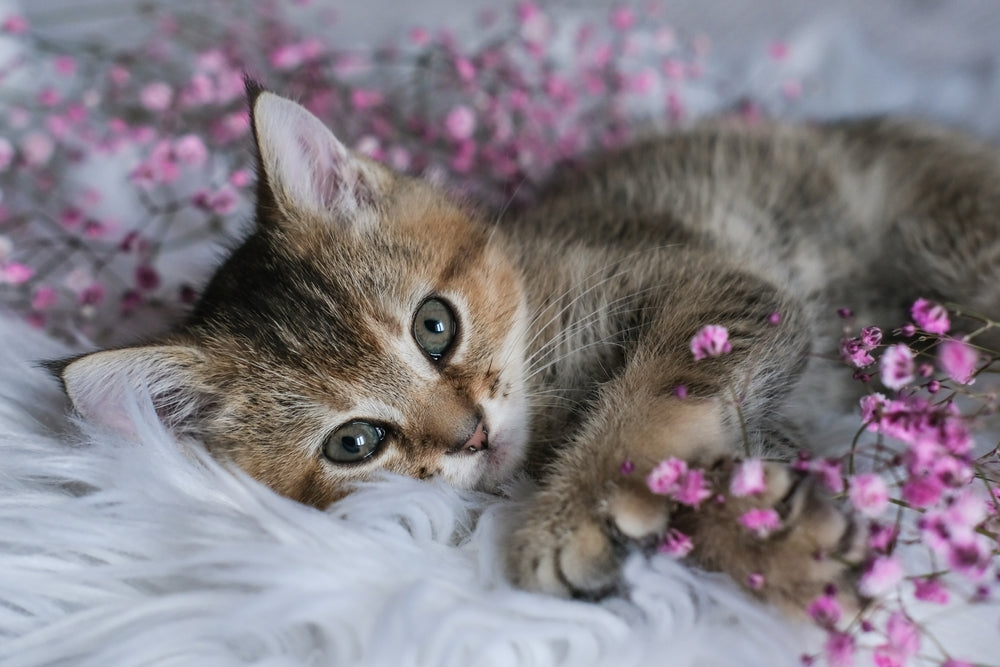
Sadly, cats don’t actually have nine lives. Any cat parent will tell you they would move mountains and swim across oceans for their cat to live the life they deserve. Some would even lay their own lives on the line for their cats if it meant saving them from potentially dangerous threats. Can you imagine how tragic it would be if your cat fell ill to something completely preventable but totally devastating and life-threatening? Luckily, in our day and age, there are medical breakthroughs and innovations known as vaccines that help protect our cat’s immune systems from even the darkest and most damaging threats.
Why should you vaccinate your adult cats?
Vaccines were created to fortify and protect the immune system against infectious diseases from pathogens like viruses and bacteria. The immune systems of our feline friends are incredibly likely to contract these potentially fatal common cat diseases if they aren’t properly protected against them. Vaccines have successfully prevented death and disease among millions of cats, and it’s crucial to maintain this practice so future generations of cats can survive and live long, happy, lives.
How soon should you vaccinate your cats?
When kittens begin to nurse, they receive essential antibodies within their mother’s milk that start to strengthen their immune system against infectious diseases. However, antibody levels tend to decline before a kitten’s immune system is fully developed, thus leaving them vulnerable to potentially infectious diseases. The rate at which these antibody levels decline varies from kitten to kitten, so vaccines for kittens are designed to step in during this vulnerable time to give them an upper hand.
What if I have an indoor cat?
Even cats that are strictly indoor cats are recommended and required to get vaccinated. The risks of contracting these fatal yet preventable diseases are far too high to say no to vaccinating your cat, even if they only stay inside. Viruses can travel on your clothes, come from new additions to your household, come from the commotion of traveling or boarding, or simply interacting with other indoor cats. Many of these diseases, such as rabies, are severe threats to human health and another reason why vaccinating your cat is important.
What are the core vaccinations?
Some vaccinations are required by law. As previously mentioned, rabies is a highly contagious, infectious disease that greatly harms humans and animals. Most states require a kitten to be vaccinated against rabies at 6 months of age.
What are the vaccinations?
The rabies vaccine is known as a core vaccine. Other core vaccines include the FVRCP vaccine, also known as the “feline distemper” shot, which is a combination of three vaccines in one that helps combat feline viral rhinotracheitis, feline calicivirus, and feline panleukopenia. Aside from the feline distemper shot, the other shot recommended by the American Association of Feline Practitioners is the Feline Herpesvirus 1 (FHV-1). While these are the core vaccinations, there are also non-core vaccines, namely:
- Feline Leukemia Virus (FeLV)
- Feline Immunodeficiency Virus (FIV)
Obviously, the best person to discuss your cat’s health and vaccine protocol is your cat’s veterinarian. They are trained and knowledgeable professionals who are there to provide your cat with the best-individualized care possible. Their veterinarian will be able to provide the appropriate and ideal vaccine schedule for your cat while considering factors such as their age, medical history, lifestyle, the likelihood of exposure to certain pathogens, and licenses and regulations depending on state laws or local and travel laws.
Just like when your kitten’s antibody levels decrease over time after nursing from their mother’s milk, vaccine efficacy ends up decreasing over time as well. This is where vaccine series and booster shots come in, and you start discussing the vaccination schedule for your cat. Much like the name suggests, booster shots are vaccine doses that “boost” your cat’s immune system. Your veterinarian will determine when your cat should get their booster shots. Adult cats usually get boosters either annually or every three years.
As with most things in life, vaccines sometimes have mild to (rarely) severe side effects. Most of the time, if a cat vaccine has a reaction, it will be something mild and short-lived, like a loss in appetite, mild fever, and lethargy. A lot of times, these will go away without treatment. More severe reactions are rare but do happen from time to time. These side effects are often along the lines of vomiting, diarrhea, difficulty breathing, or swelling in the face. If you suspect your cat of experiencing severe side effects due to a specific vaccination, consult its veterinarian immediately. They’ll be able to diagnose what is going on. They may alter or stop the vaccine schedule to administer an antihistamine to alleviate severe reactions.
No matter what, the most important person to consult about your cat’s health is, of course, their veterinarian. You’ll be able to discuss the ideal schedule of when to vaccinate your cat, potential risk factors of vaccinating your cat, what happens if you don’t vaccinate your cat, and why vaccinating your cat is important (if this article hasn’t already done the job).
Learn more ways to keep your cat protected from illness on thePrettyLitter blog.
Tired of your home smelling like you have a cat?
15% off PrettyLitter
Try it today Use code: PRETTYBLOG
Sources:
- https://www.vet.cornell.edu/departments-centers-and-institutes/cornell-feline-health-center/health-information/feline-health-topics/feline-vaccines-benefits-and-risks
- https://catfriendly.com/keep-your-cat-healthy/vaccines/#:~:text=Vaccines%20help%20protect%20against%20specific,are%20protected%20throughout%20their%20lives.
- https://www.sharonlakes.com/site/blog-south-charlotte-vet/2020/06/15/cat-vaccinations-why-vaccinate-indoor-cats
- https://pets.webmd.com/cats/cat-vaccines
- https://www.argylevet.com/site/blog/2021/06/15/should-i-get-my-indoor-cat-vaccinated
- https://www.rauanimalhospital.com/services/cats/vaccinations

Follow Us